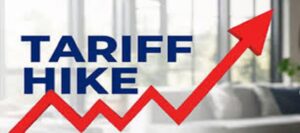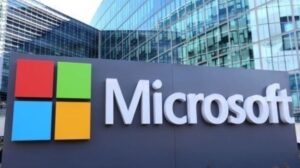Telecom
Airtel Partners Google to Elevate Home Entertainment
Telecommunications service provider Airtel Nigeria has announced an innovative partnership with Google to transform home entertainment across Nigeria.

The partnership, which was unveiled at an agreement signing ceremony at the telecom giant’s Lagos headquarters, integrates YouTube, the world’s largest video platform, into the ground-breaking Airtel Smart Router to deliver seamless internet connection and entertainment experiences for subscribers across the country.
As part of this innovative update, the Airtel Smart Router further fulfils its promise as a 2-in-1 device, acting as an internet router while also converting analogue television sets into smart TVs to enable YouTube viewing on any type of TV.
Now with a YouTube app, a dedicated button on the remote control, and an operating system optimised for a seamless YouTube experience, the Smart Router is equipped to bring world-class quality entertainment closer to more Nigerians.
Speaking on the new partnership, Chief Commercial Officer, Airtel Nigeria, Femi Oshinlaja, highlighted its significance towards transforming digital entertainment in Nigerian homes.
“At Airtel, our goal to bridge the digital gap includes the provision of affordable entertainment content. Through this partnership with Google, we continue to revolutionise the entertainment space as the Airtel Smart Router offers a complete experience, delivering internet services and easy access to world-class entertainment through YouTube,” he said.
Also providing more insight about the collaboration, Director, Corporate Communications & CSR, Femi Adeniran, stated, “The integration of YouTube on the Airtel Smart Router offers an unmatched simplification of the customer experience, transforming how our customers consume digital content at home. This partnership reflects our commitment to creating affordable and innovative solutions that enhance the digital lifestyle of our customers.”
The ground-breaking Airtel Smart Router, which retails for N25,000 and arrives with unlimited data for 30 days, simplifies the streaming of movies, football matches, cartoons, music, and other forms of audio-visual entertainment for the entire family.
Olumide Balogun, West Africa Director, Google, added: “YouTube has always been about connecting people with the content they love, whether it’s exploring new hobbies, staying informed, or discovering creative inspiration.
“With this partnership, we’re making it easier for more Nigerians to access their favorite videos right from their TVs, enabling even more homes to benefit from the wealth of knowledge and entertainment that YouTube offers. It’s an exciting step toward our mission of creating a digitally inclusive Africa.”
Reiterating Balogun’s assertion, Director, EMEA Product Partnerships, YouTube, Mahesh Bhalerao said, “YouTube is the stage where culture comes to life and where everyone, from creators to viewers, can find their voice and connect with what matters most to them.
“This collaboration with Airtel underscores our commitment to bringing high-quality, on-demand content to more homes, while empowering Nigerian audiences to explore, learn, and enjoy the diversity of experiences YouTube offers.”
Airtel is committed to redefining the data access for Nigerian households via affordable and portable connection devices such as routers and MiFis.
Telecom
Nigeria Has World’s Most Affordable Data Costs – GSMA
Nigeria has an average data cost of $0.38 per gigabyte, making her the most affordable countries globally and one of the cheapest in Africa for mobile data services.

United States averages $6 per gigabyte and South Africa with $1.77 per gigabyte rank the highest globally and in Africa respectively.
According to the GSMA, Nigerian data costs, as a percentage of Gross National Income (GNI) per capita, are among the lowest across Africa.
The reports by the body lends weight to telecom operators advocacy for tariff adjustments to address economic pressures threatening the sector’s sustainability.
The GSMA report, titled “The Role of Mobile Technology in Driving the Digital Economy in Nigeria,” highlighted Nigeria’s competitive data pricing, which is significantly lower than other African nations, such as Kenya ($0.59 per gigabyte), Ethiopia ($0.68 per gigabyte), and South Africa ($1.77 per gigabyte).
By contrast, the United States averages $6 per gigabyte, underscoring Nigeria’s advantage in offering cost-effective connectivity.
The cost of mobile data in Africa varies greatly by country and region.
Data costs can refer to the cost of mobile data or the cost of acquiring, maintaining, and using business data.
In 2023, the average cost of 1 GB of mobile data in Sub-Saharan Africa was $3.31, while in Northern Africa it was $0.86.
Telecommunications operators in Nigeria have been requesting some policy changes as well as tariff rebalancing to enable them deliver support to the Government’s digital economy objectives.
They have called for the simplification and improvement of the Right of Way (RoW) charging and administration process, harmonised across the country
According to them, all government authorities (at national and sub-national levels) should apply the national maximum RoW fee of N145 per/LSQM adopted by the National Economic Council (NEC) for the deployment of fibre across all states in Nigeria.
There should be a single point of contact in each state for the RoW application process while the duration for the approval process should be digitalised and limited to a maximum of one month.
Simplification and reduction of the tax burden on the mobile sector
On tariff, recall that the Association of Licensed Telecommunications Operators of Nigeria (ALTON) and the Association of Telecommunications Companies of Nigeria (ATCON) had urged the Nigerian Communications Commission (NCC) to consider reviewing tariffs upward to address rising operational costs.
Nodding in agreement, Bismarck Rewane, chief executive officer, Financial Derivatives, said the proposed tariff hike by telecommunications will help reduce inflation in the country.
He said it would help to reduce inflation because it increases productivity, stressing that the price of MTN shares went up by 10% to 220.
Rewane reiterated that investors had already factored that in, adding that they are expecting a lot of good goodies.
“But more important to think about is the fact that because of an increase in tariff and an increase in investment to make the industry sustainable, they’re going to see an increase in productivity, not directly but indirectly.
“Any increase in productivity and output is likely to allow inflation to moderate, which is the goal. So, we heard from the policymaker, Bosun Tijani, who was very clear that we want a sustainable sector. But we also heard from the regulator saying that we will hold these guys to quality of service.
“We also heard from the operators, MTN that they are all revving up. So in all, there are economic benefits because of increased output and productivity. Two, policymakers are aligned because they want this to lead to a moderation in inflation,” he added.
He further said that it was not a bad deal and re-echoed the minister’s comment that the tariff hike will not be 100 per cent.
“Will they get 100%? No, they will definitely not. We suspect that we are going to likely see something between 40 and 50% which is fair after so many years of static changes,” Rewane added.
Telecom
Bismarck, Economist Claims Planned Tariff Hike by Telcos Will Reduce Inflation
Bismarck Rewane, chief executive officer, Financial Derivatives, has said the proposed tariff hike by telecommunications will help reduce inflation in the country.

Rewane made this statement on Channels Television’s Business Morning on Thursday.
Recall that Association of Licensed Telecommunications Operators of Nigeria (ALTON) and the Association of Telecommunications Companies of Nigeria (ATCON) had urged the Nigerian Communications Commission (NCC) to consider reviewing tariffs upward to address rising operational costs.
On January 3, Karl Toriola, chief executive officer (CEO), MTN Nigeria, said telcos want a 100 percent tariff hike.
According to Rewane, who previously supported the plans for a tariff hike, the move will make the sector more sustainable.
He said it would help to reduce inflation because it increases productivity, stressing that the price of MTN shares went up by 10% to 220.
Rewane reiterated that investors had already factored that in, adding that they are expecting a lot of good goodies.
“But more important to think about is the fact that because of an increase in tariff and an increase in investment to make the industry sustainable, they’re going to see an increase in productivity, not directly but indirectly.
“Any increase in productivity and output is likely to allow inflation to moderate, which is the goal. So, we heard from the policymaker Bosun Tijani, who was very clear that we want a sustainable sector. But we also heard from the regulator saying that we will hold these guys to quality of service.
“We also heard from the operators, MTN that they are all revving up. So in all, there are economic benefits because of increased output and productivity. Two, policymakers are aligned because they want this to lead to a moderation in inflation,” he added.
He further said that it was not a bad deal and re-echoed the minister’s comment that the tariff hike will not be 100 per cent.
“Will they get 100%? No, they will definitely not. We suspect that we are going to likely see something between 40 and 50% which is fair after so many years of static changes,” Rewane added.
Telecom
Microsoft to Spend $80Bn on AI Data Centres
In a bid to build AI-enabled data centres, Brad Smith, vice chair and president, Microsoft has disclosed the company’s plan to spend approximately $80 billion in its current financial year (to end in June), with more than half of that investment designated for the US.

Smith in a blog post, explained the tech giant plans to use the data centres “to train AI models and deploy AI and cloud-based applications around the world.”
Smith welcomed U.S. President Donald Trump to his second term in office, he cautioned against “heavy-handed regulations” that could slow down the private sector.
“The most important US public-policy priority should be to ensure that the US private sector can continue to advance with the wind at its back,” Smith stated.
He further explained that the U.S. “needs a pragmatic export control policy that balances strong security protection for AI components in trusted data centers with the ability for U.S. companies to expand rapidly and provide a reliable source of supply to the many countries that are American allies and friends.”
Stating that the US is well-positioned to flourish in its development of AI due to solid technology development and an innovative private sector.
“If the Trump Administration can develop a strong national AI talent strategy and use AI to make the government more effective and efficient, it will put the country on a promising path.”
He stated the U.S. is in a strong position to “win the essential race with China by advancing international adoption of American AI.”
Smith further claimed U.S. “products are more trusted than their Chinese counterparts, and our private sector is unmatched in its ability to invest in infrastructure around the world.”

 E-Financial2 days ago
E-Financial2 days agoSEC to Strengthen Borrowing Framework for Governments, Corporates

 E-Business2 days ago
E-Business2 days agoKaspersky Reviews Main Business Headache Related to IT Security

 E-Business3 days ago
E-Business3 days agoFirm Explores 2025 Potential IT Outage and Supply Chain Risk Scenarios

 Telecom2 days ago
Telecom2 days agoBismarck, Economist Claims Planned Tariff Hike by Telcos Will Reduce Inflation

 E-Financial3 days ago
E-Financial3 days agoGTCO Completes First Phase of Capital Raise Initiative with N209bn

 General News21 hours ago
General News21 hours agoNigeria Recovers $52.88m in Assets Linked to Former Petroleum Minister Diezani Alison-Madueke

 Telecom3 days ago
Telecom3 days agoCall, Data Tariffs Will Increase – Nigerian Minister, Tijani Declares

 E-Business2 days ago
E-Business2 days agoFG to Add Iris Biometrics to Digital ID for more Inclusion

























